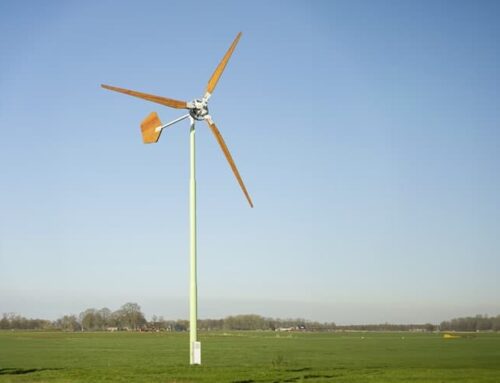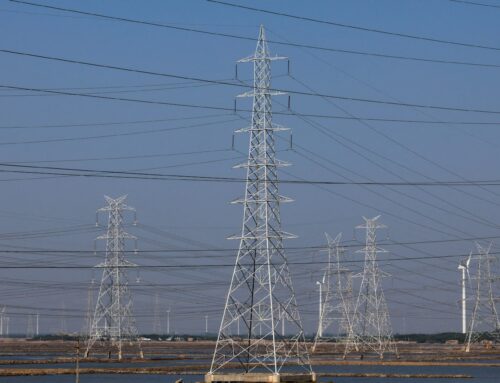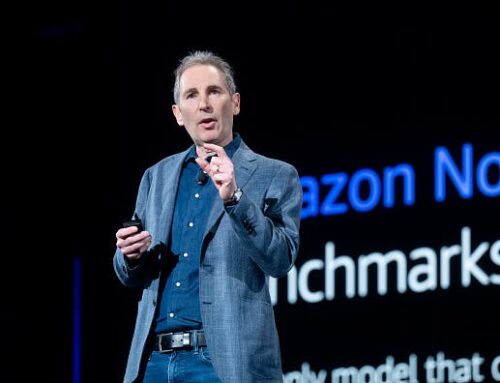AI is guzzling energy for slop content – could it be reimagined to help the climate?
November 17, 2025
Artificial intelligence is often associated with ludicrous amounts of electricity, and therefore planet-heating emissions, expended to create nonsensical or misleading slop that is of meagre value to humanity.
Some AI advocates at a major UN climate summit are posing an alternative view, though – what if AI could help us solve, rather than worsen, the climate crisis?
The “AI for good” argument has been made repeatedly at the Cop30 talks in Belém, Brazil, with supporters arguing AI can be used to lower, rather than raise, emissions through a series of efficiencies that can spread through areas of our lives such as food, transport and energy that cause much of the pollution dangerously heating our planet.
Last week, a coalition of groups, UN bodies and the Brazilian government unveiled the AI Climate Institute, a new global initiative aimed at fostering AI “as a tool of empowerment” in developing countries to help them tackle environmental problems.
Proponents say the program, in time, will help educate countries on how to use AI in an array of ways to bring down emissions, such as better optimizing public transit, organizing agricultural systems and recalibrating the energy grid so that renewables are deployed at the right times.
Even weather forecasting, including the mapping of impending climate-driven disasters such as flooding and wildfires, can be improved in this way, according to Maria João Sousa, executive director, Climate Change AI, one of the groups behind the new initiative.
“Very few places in the world actually run numerical weather prediction models because numerical weather prediction models are very compute-intensive,” she said. “I definitely believe (AI) is a positive force to accelerate a lot of these things.”
AI can help monitor emissions, biodiversity and generally see what is going on, said Lorenzo Saa, chief sustainability officer at Clarity AI, who is also attending Cop30.
“You can really start looking at where the problem is,” he said. “Then you can predict, and the prediction is actually short-term and long-term. You can now predict floods in the next week, but you can actually figure out sea level rise and things like that.”
Saa admitted there are legitimate concerns about the governance of AI and its impact upon society but, on balance, the effect on the environment could be positive. In June, a report by the London School of Economics had an unexpectedly sunny estimate – AI could reduce global greenhouse gases by 3.2bn to 5.4bn tonnes in the next decade, even factoring in its vast energy consumption.
“People already make dumb decisions about energy, such as running air conditioning for too long,” Saa said. “How much of our phone has bad stuff for us? I think a lot. How many hours do we spend on Instagram?
“My view of this is that society is going to go in this direction. We need to think about how we are not destroying the planet with heating and we’re actually trying to make sure that there’s a net benefit.”
Some other experts and environmental advocates are not convinced. The huge computational power of AI, particularly generative AI, is fueling a boom in data centers in countries such as the US that is gobbling up a huge amount of electricity and water, even in places prone to droughts, pushing up electricity bills in some places as a result.
The climate cost of this AI gold rush, driven by companies such as Google, Meta and OpenAI, is large and set to get larger – a recent Cornell University study found that by 2030, the current rate of AI growth in the US will add up to 44m tons of carbon dioxide to the atmosphere, the equivalent of adding 10m gasoline cars to the road or the entire annual emissions of Norway.
“People have this techno-utopian view of AI that it will save us from the climate crisis,” said Jean Su, a climate campaigner at the Center for Biological Diversity. “We know what will save us from the climate crisis – phasing out fossil fuels. It’s not AI.”
Also, while AI can be used to drive efficiencies to lower emissions, the same sort of tools can be used to optimize other areas – including fossil fuel production. A report last month by Wood Mackenzie estimated that AI could help unlock an extra trillion barrels of oil – a scenario which, if the energy markets were to be amenable to such a thing, would obliterate any hopes of restraining catastrophic climate breakdown.
Natascha Hospedales, lead lawyer for AI at Client Earth, said there is some merit to the “AI for good” argument, but that it is a “really small niche” within a much larger industry that is much more focused on maximizing profits.
“There is some truth that AI could help the developing world, but much of this is in the early stage and some of it is hypothetical – it’s just not there yet,” she said. “Overall we are very, very far from a situation where AI for good balances out the negative environmental impact of AI.
“The environmental cost of AI is already alarming and I don’t see data center growth winding down any time soon. A small percentage of AI is used for good and 99% of it is companies like Google and Meta lining their pockets with money, damaging the environment and human rights as they do it.”
Search
RECENT PRESS RELEASES
Related Post




